We often hear about workers being exploited by greedy bosses and big corporations. But if you work for family, one would think you’d be safe from such treatment. Apparently that’s not the case.
When one woman’s brother offered her a full-time job as a nanny, she never imagined it’d come with a list of conditions that might make the labor department raise an eyebrow. The 22-year-old has told how she’d be expected to move into his spare room, give in her phone, give up her car, hand in any savings, and not socialize with anyone unless “pre-approved.” She feels it’s giving “exploitation.”
She was excited when her brother offered her a full-time position as a nanny

Image credits: Prostock-studio (not the actual photo)
But things turned sour when she learned of the crazy conditions attached to the job
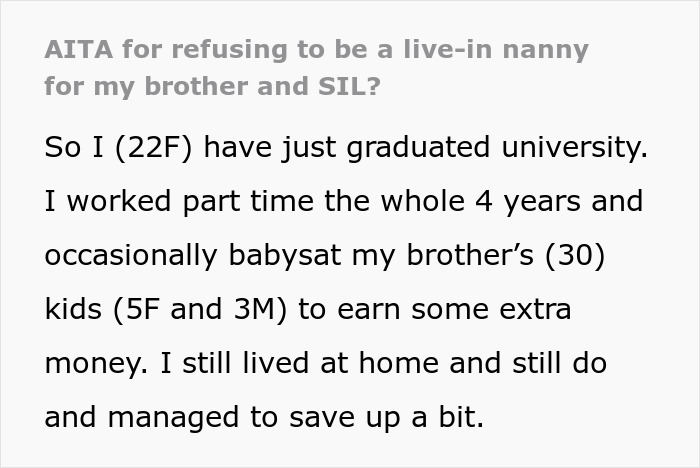
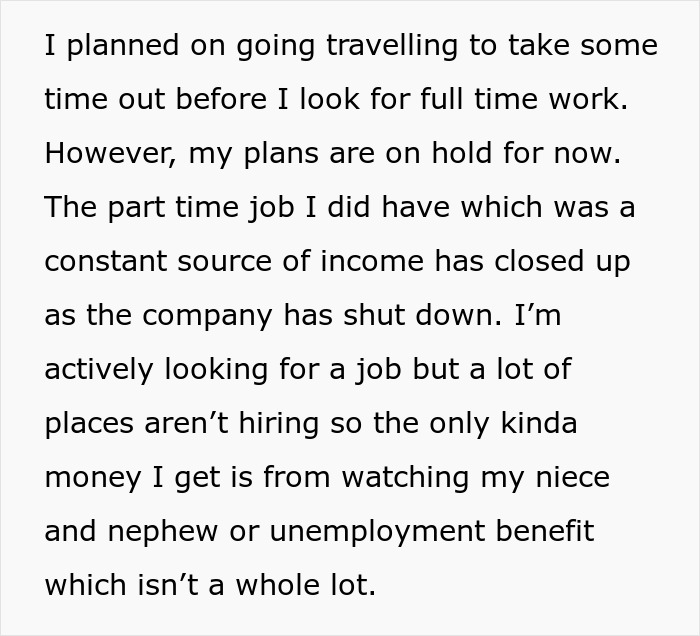
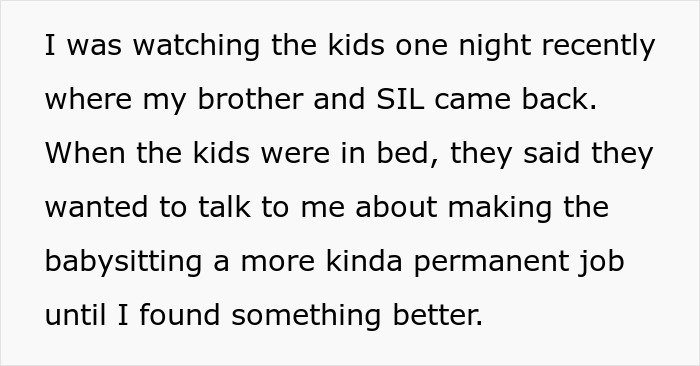
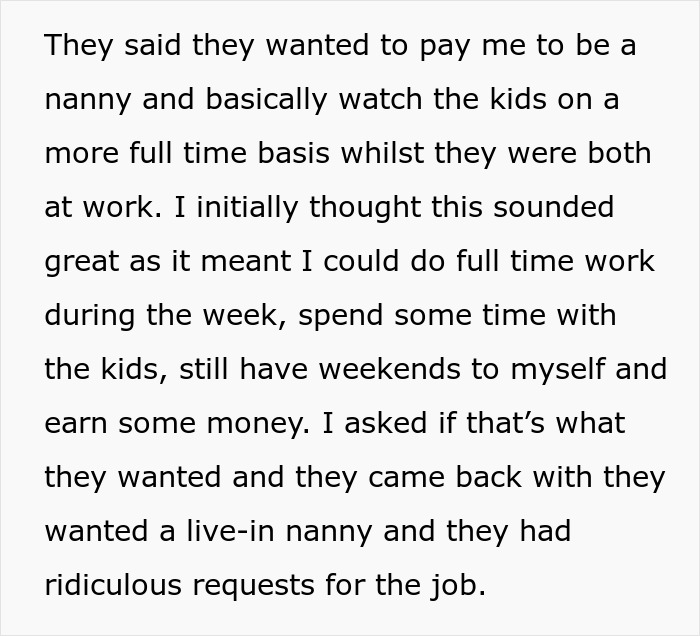
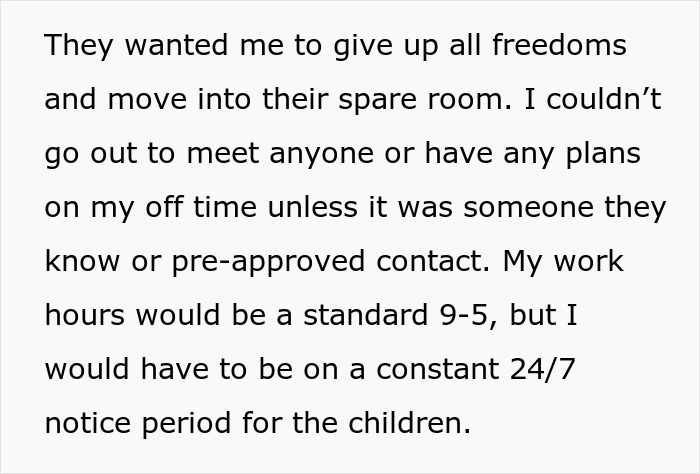

Image credits: Iakobchuk (not the actual photo)



Image credits: Anonymous
Lots of questions followed, and the woman was happy to answer


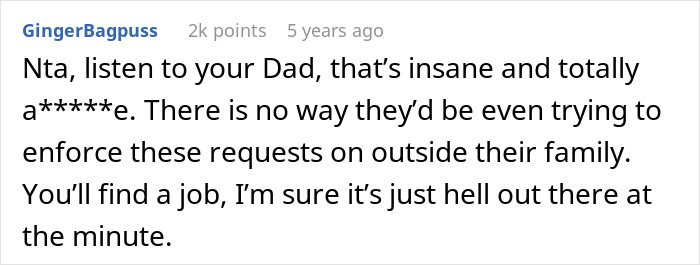

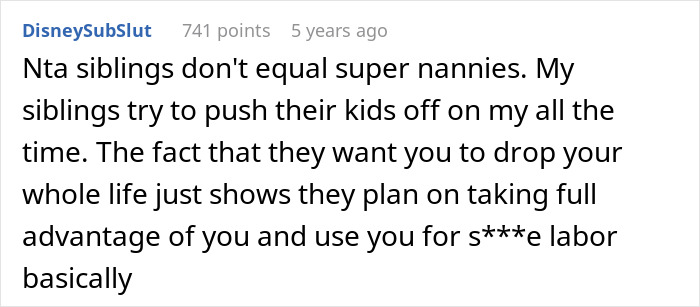









Exploitation in the workplace is more common than many might think
When you think of exploitation you might think of sweat-shop laborers or illegal immigrants being treated unfairly. But experts say the problem is much more widespread.
“While agriculture, food-delivery, and healthcare are three of the sectors with the most workers who feel they’re being exploited, many professionals are treated unfairly—or feel they’re being treated unfairly—by their employers,” reveals the Academy of Management.
Experts say noted that the idea of exploitation has received a lot of attention in other fields yet is conspicuously absent in management and organizations research.
Academy of Management Scholar Jaqueline “Jackie” Coyle-Shapiro and colleagues from Aalto University in Finland have been researching exploitation in the e-hailing food delivery sector. In particular, whether these workers feel that their immigration status makes them more vulnerable to ad treatment by companies like DoorDash, Uber Eats, Seamless, Grubhub, Instacart, ChowNow, Deliveroo, and Postmates.
Additionally, they’re looking into what extent hospital workers in Portugal feel exploited by their employers.
“We’re examining to what extent that exploitation is structurally based in terms of the systems and human-resource-management practices in the organization, versus to what extent it’s more relationally based in the sense that upper management and leaders within the organization are taking advantage of employees,” Coyle-Shapiro said.
The scholar added that their research suggests that exploitation may be a lot more prevalent than low-paid, vulnerable immigrants that may not be legal in a particular country.
“We’re looking at how organizations may be exploiting professional employees, and one question that that I have is, ‘To what extent do employees need to be exploited in order to make a difference?’” she said. “If we think about employees that are passionate about providing the best healthcare possible, and so they have this calling or innate desire to make a difference to society, to what extent that puts them in a position where they’re vulnerable to exploitation by their employer.
“That’s raising a question about who’s carrying the burden of making a difference or having an impact in society: Is it the employee through going above and beyond the call of duty, working extra hours, or is it the organization whose purpose propels them to making a positive impact in society?”

Image credits: Rodolfo Quirós (not the actual photo)
When someone is working in another person’s home, they may be particularly vulnerable to exploitation
Domestic work and domestic servitude are a double-edged sword. When properly regulated, it can be an important source of income for many people. But working in another person’s home makes someone particularly vulnerable to exploitation because they might be hidden from sight and lack legal protection.
“People can be particularly vulnerable… when external circumstances push them into taking risky decisions in search of opportunities to provide for their families, or when people find they are simply pushed into jobs in exploitative conditions,” explains the this international human rights site. “Anyone could be pressed into forced labour, but people in vulnerable situations – such as being in debt, or not having access to their passport – are most at risk.”
The go on to say that domestic workers perform a range of tasks in private homes, including cooking, cleaning, laundry, taking care of children and elderly people, and running errands.
“Some domestic workers also live in their employers’ homes, and are often considered ‘on call’ to undertake work for their employer 24 hours a day,” they add.
A domestic worker is exploited when employers stop them from leaving their home. Or when pay is low, delayed, or withheld. Or if pay is given ‘in kind,’ in the form of food and/or accommodation. The same applies when their identity documents are withheld or employers limit domestic workers’ contact with family.

Image credits: cottonbro studio (not the actual photo)
“Ridiculous and extremely controlling”: Many were shocked at the brother’s ‘job offer’
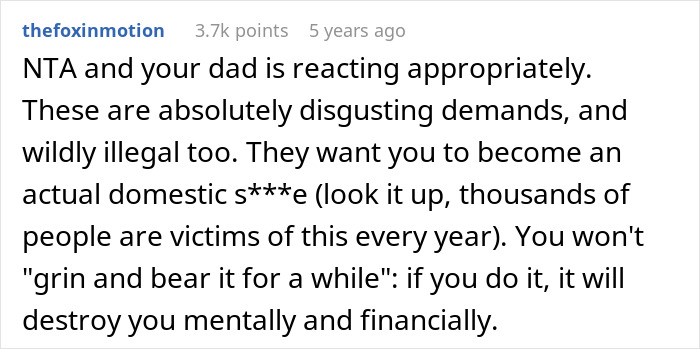

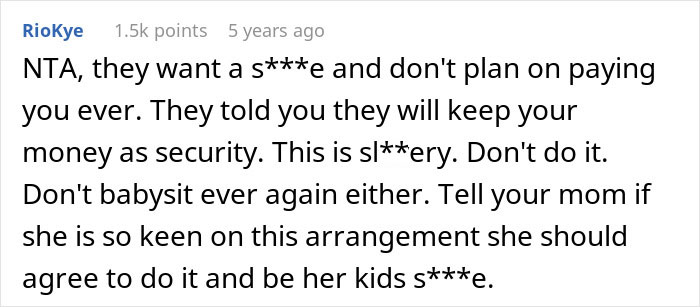
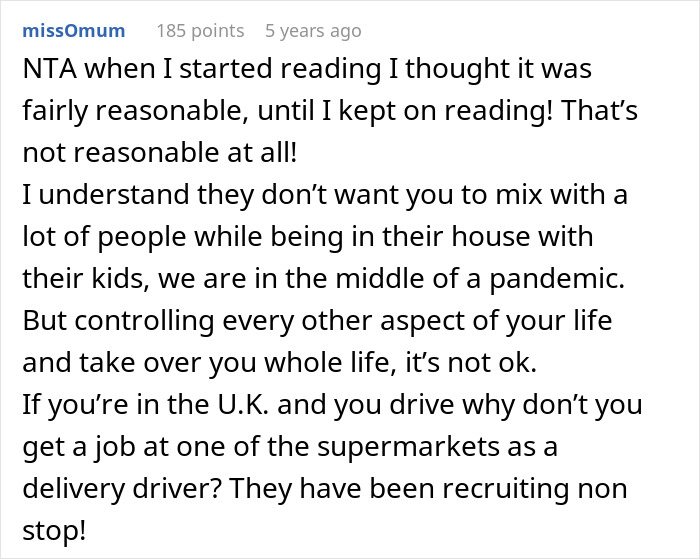
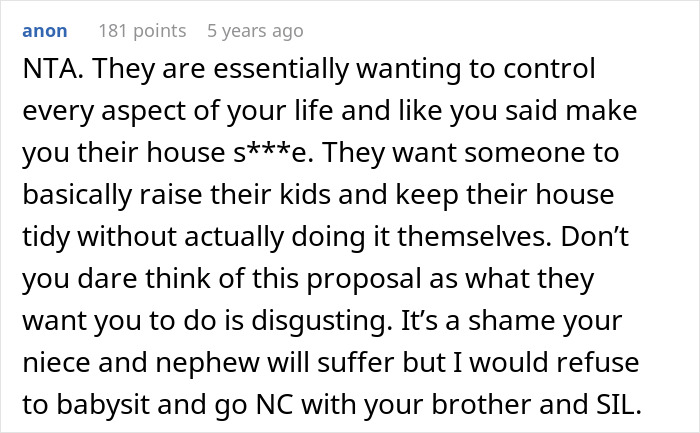

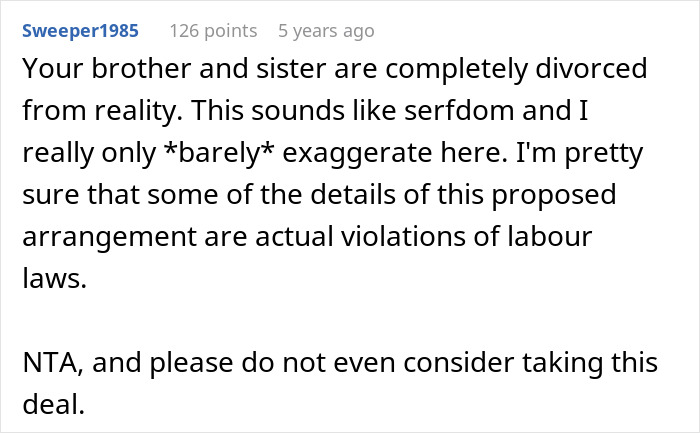
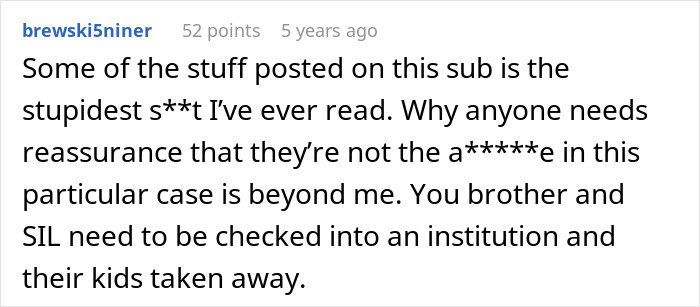


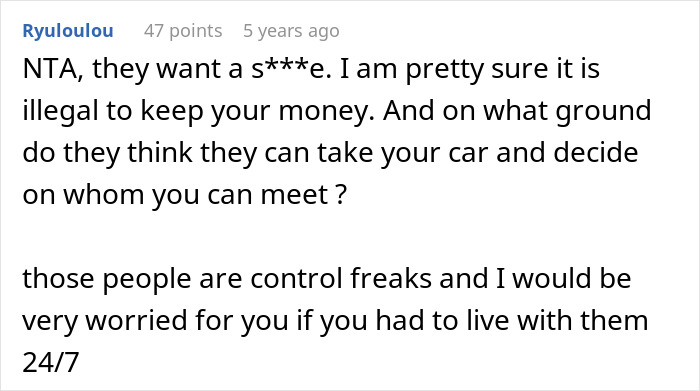



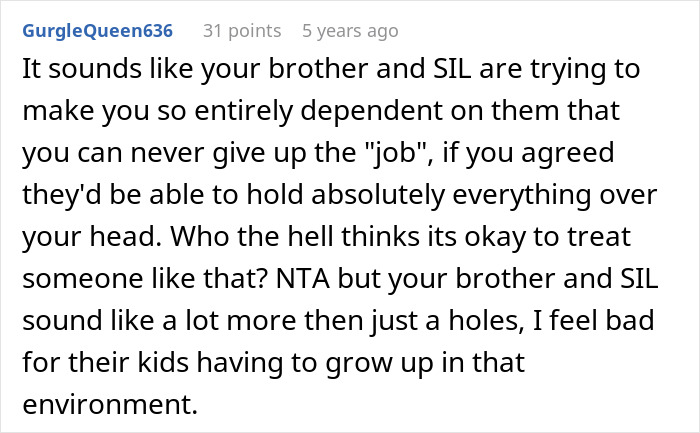

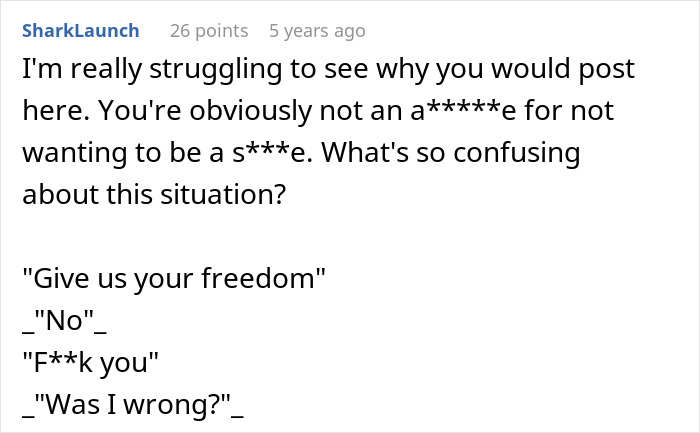

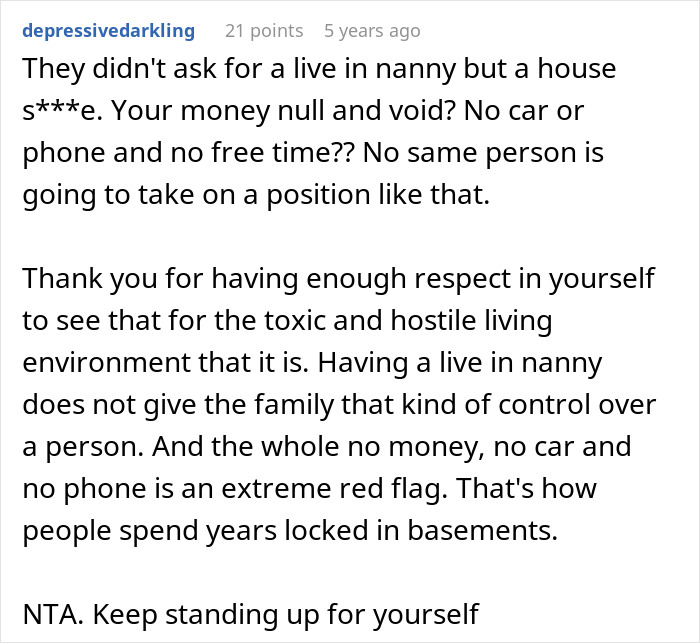
She later revealed that she’d gone no-contact with the couple
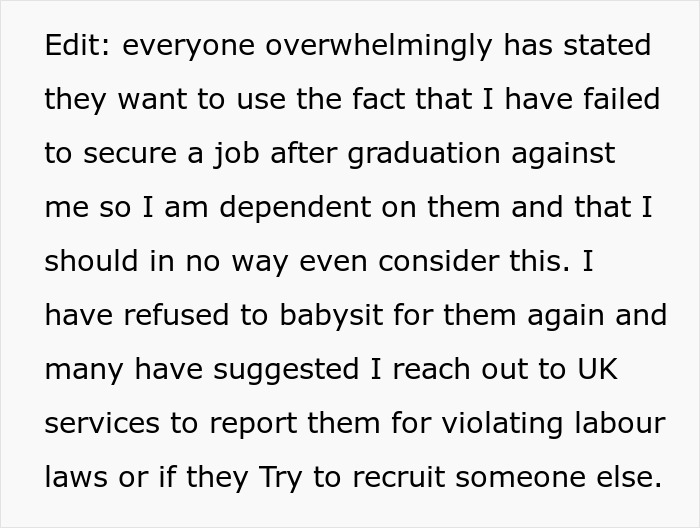
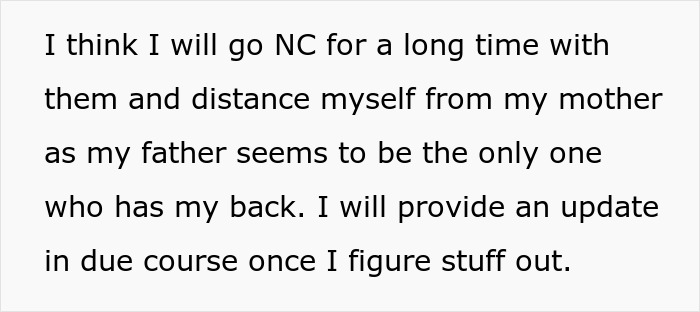
 Follow Us
Follow Us





